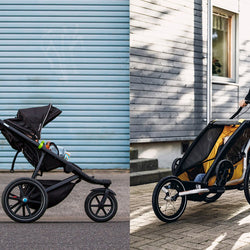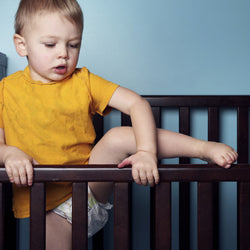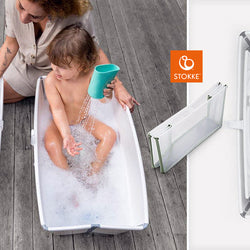How to Curb Entitlement in Our Children This Christmas
Dealing with the tension of too many Christmas gifts

by Annie Wiesman
Dec 25, 2017
But the Christmas season can also bring its share of tensions, from family dynamics, to frenetic schedules, to unmet expectations. And one particular struggle can be all the presents our children receive, both from us and from loved ones. While we want to be generous givers, the reality of too many gifts offers is own set of pressures.
Tension of too many Christmas presents
• When children get whatever they want, they can start to believe that material things will make them happy, and they deserve all those things.
• Entitled children don’t learn the value of delayed gratification. Children that are able to wait for what they want build mental strength that leads to further success down the road.
• According to this study, too many toys can stifle creativity and affect a toddler’s focus and quality of play.
• From a purely practical standpoint, the already crowded playroom has no space to spare.
So how can we avoid discontented children even when they don’t get something they want? How can we help our children appreciate the presents they do receive on Christmas day?
The shift in perspective has to start with the parents
Having a child is like holding a mirror up to our character—shining a light on the good and the bad. It’s easy to say we want our children to be grateful and content, but if we’re not modeling those characteristics and only instructing with words, it will have very little impact.
I have to humbly look into that mirror and be willing to accurately see the messages I am sending with my own behavior and see if there are changes I need to make.
And honestly, this has to be all year around, not just at Christmas. But if we realize we have been inadvertently communicating certain ideas, why not start to make changes now?
A place to start
• When we buy unnecessary things every time we go shopping (or verbalizing the need for something to make us happy), we are communicating a discontent with what we have.
• The same goes for buying children what they ask for when shopping. It can feel like a small thing to get a little treat as a reward for being good while grocery shopping, but by doing so, we set the precedent that requests for things are always received.
• When it comes to Christmas and birthday, I don’t typically ask my daughter what she wants. I know her well enough to know what she enjoys and I don’t want to communicate that she is in charge of what she receives.
• Occasionally purging our closets demonstrates a stewardship of our home and our space. Keeping things organized or regularly reorganizing helps to set a good example. Making space for new things, particularly Christmas presents, keeps the clutter down after the holidays and allows us to enjoy our new things more.
• Writing thank you cards together for the gifts we receive is a perfect way to intentionally communicate gratitude for the generosity of others.
• Shift the focus off of what we receive at Christmas onto how we can serve others. (See these articles for further ideas: Exemplify Generosity with Christmas Traditions and Expressing Gratitude as a Family.)
These are just a few ideas to get you thinking about how to curb entitlement in your children. Sometimes wish lists and abundant gift giving at Christmas can open our eyes to unwanted messages we are actually communicating to our children. Instead of lavishing our children with presents, lavish them with love, time, and encouragement.
Annie Wiesman
Annie Wiesman is the co-author of “Education Begins at Birth: A Parent’s Guide to Preparing Infants, Toddlers, and Preschoolers for Kindergarten.” She is a former kindergarten teacher turned stay-at-home mom who enjoys traveling, hiking in the mountains, and creating memories together with her husband and little girl.











